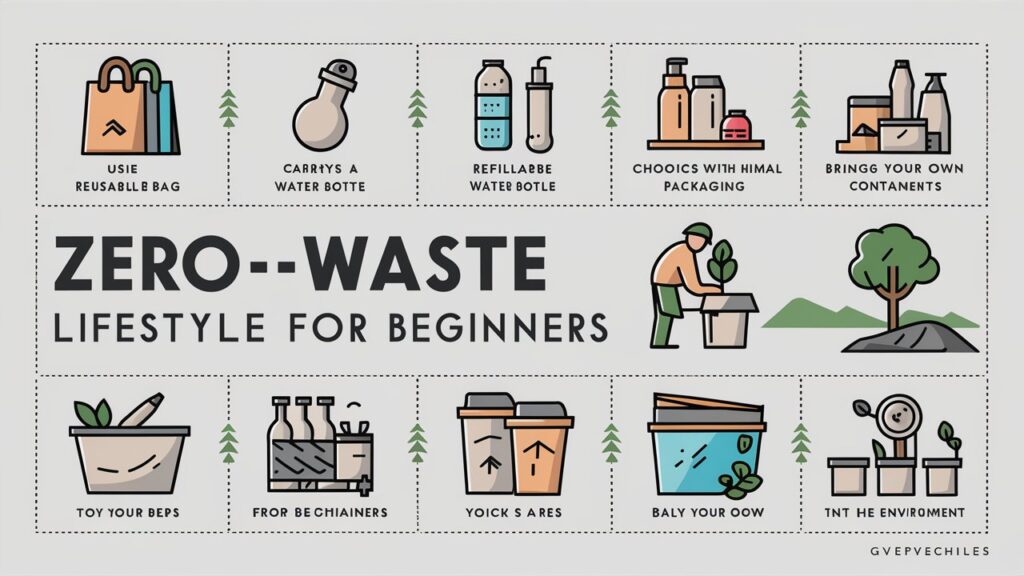As the world becomes increasingly aware of the environmental impact of waste, more individuals are seeking ways to adopt a sustainable lifestyle. One of the most effective ways to make a difference is through zero-waste shopping. This guide will help you navigate the essentials of shopping without generating unnecessary waste, making your grocery trips eco-friendly and efficient.

Understanding Zero-Waste Shopping
Zero-waste shopping is about minimizing waste by avoiding products with excessive packaging and choosing items that can be reused, recycled, or composted. This approach not only reduces landfill contributions but also promotes sustainable production practices. Here are key principles to keep in mind:
- Refuse: Say no to items you don’t need or that come with excessive packaging.
- Reduce: Buy only what you need to minimize waste.
- Reuse: Opt for reusable containers and bags.
- Recycle: Properly recycle materials when possible.
- Rot: Compost organic waste instead of throwing it away.
Tips for Successful Zero-Waste Shopping
Bring Your Own Bags and Containers
Always carry reusable shopping bags, produce bags, and containers. This allows you to avoid single-use plastic bags and packaging. Consider using cotton or hemp bags for fruits and vegetables, and glass jars for bulk items like grains and nuts
Shop in Bulk
Buying in bulk is one of the best ways to reduce packaging waste. Many grocery stores have bulk sections where you can find grains, nuts, spices, and snacks without plastic wrapping. Bring your own containers to fill up on the quantities you need.
Choose Loose Produce
Whenever possible, select loose fruits and vegetables instead of pre-packaged ones. This simple switch can significantly cut down on plastic waste. If your store offers unpackaged options, take advantage of them!
Avoid Pre-Packaged Goods
Steer clear of items that come in excessive packaging, such as individually wrapped snacks or canned goods when fresh alternatives are available. Look for products that use minimal or recyclable packaging.
Buy Local
Support local farmers and businesses by purchasing seasonal produce at farmers’ markets or local shops. Local foods often have a smaller carbon footprint and less packaging compared to imported items.
Plan Your Meals
Meal planning helps you buy only what you need, reducing food waste significantly. Create a shopping list based on your meal plan to avoid impulse purchases that lead to excess waste.
Shop When You’re Full
Avoid shopping on an empty stomach to minimize impulse buys. When you’re satisfied, you’re less likely to grab unnecessary snacks or items that may end up going to waste.
Recycle Responsibly
If you do end up with plastic bags or other recyclable materials, ensure they are disposed of properly. Many grocery stores offer recycling bins specifically for plastic bags.
Educate Yourself on Store Policies
Familiarize yourself with the policies of your local grocery stores regarding bulk buying and reusable containers. Some stores may allow you to bring your own containers for deli items or bakery goods.
Explore Zero-Waste Shops
If available in your area, visit zero-waste shops that specialize in offering products without packaging. These stores often have a wide range of bulk foods and eco-friendly household items.
Conclusion
Zero-waste shopping is a powerful way to contribute positively to the environment while making conscious choices about what you consume. By implementing these tips into your shopping routine, you can significantly reduce your waste footprint and promote a more sustainable lifestyle. Remember, every small action counts—start your zero-waste journey today!